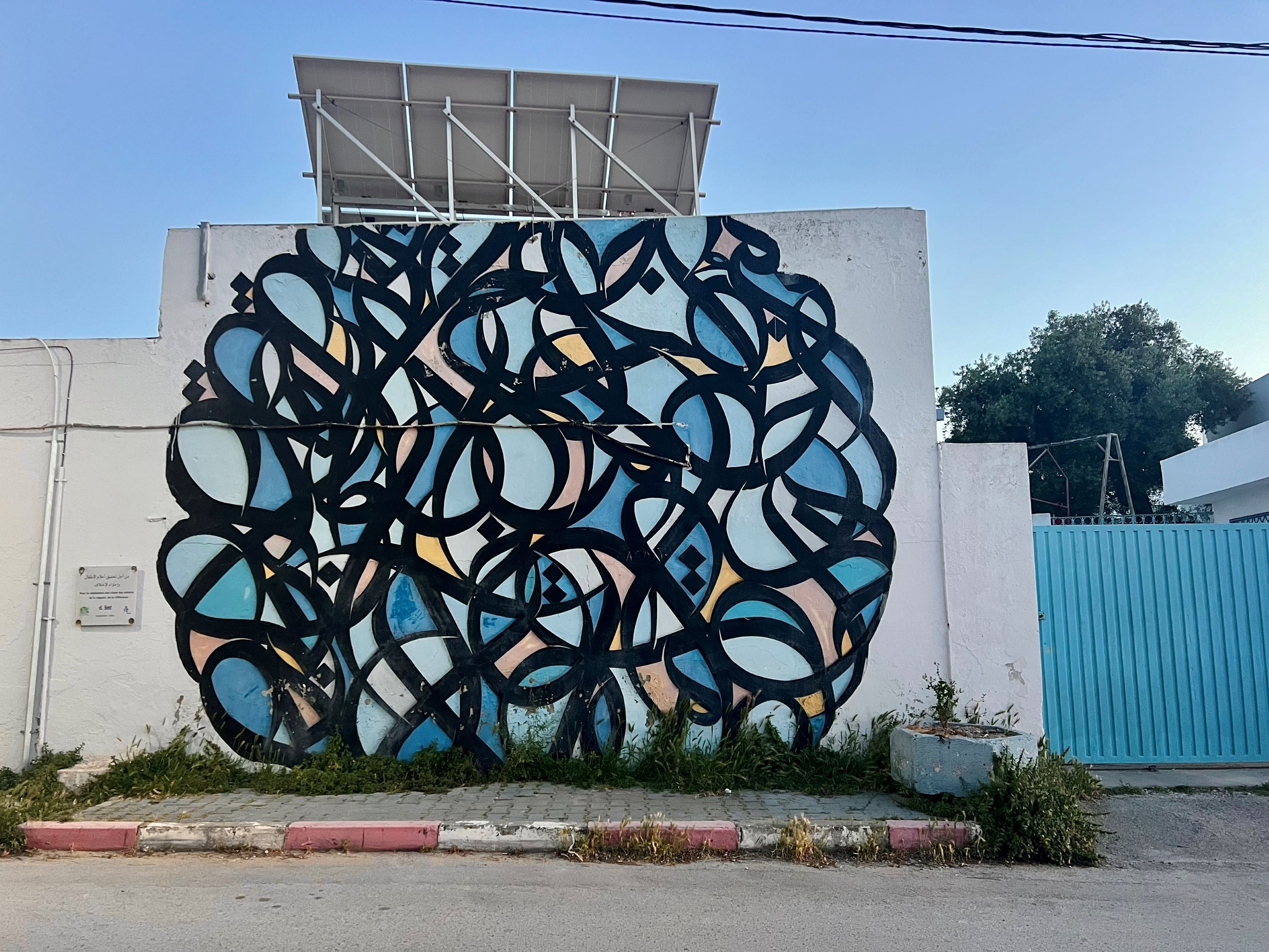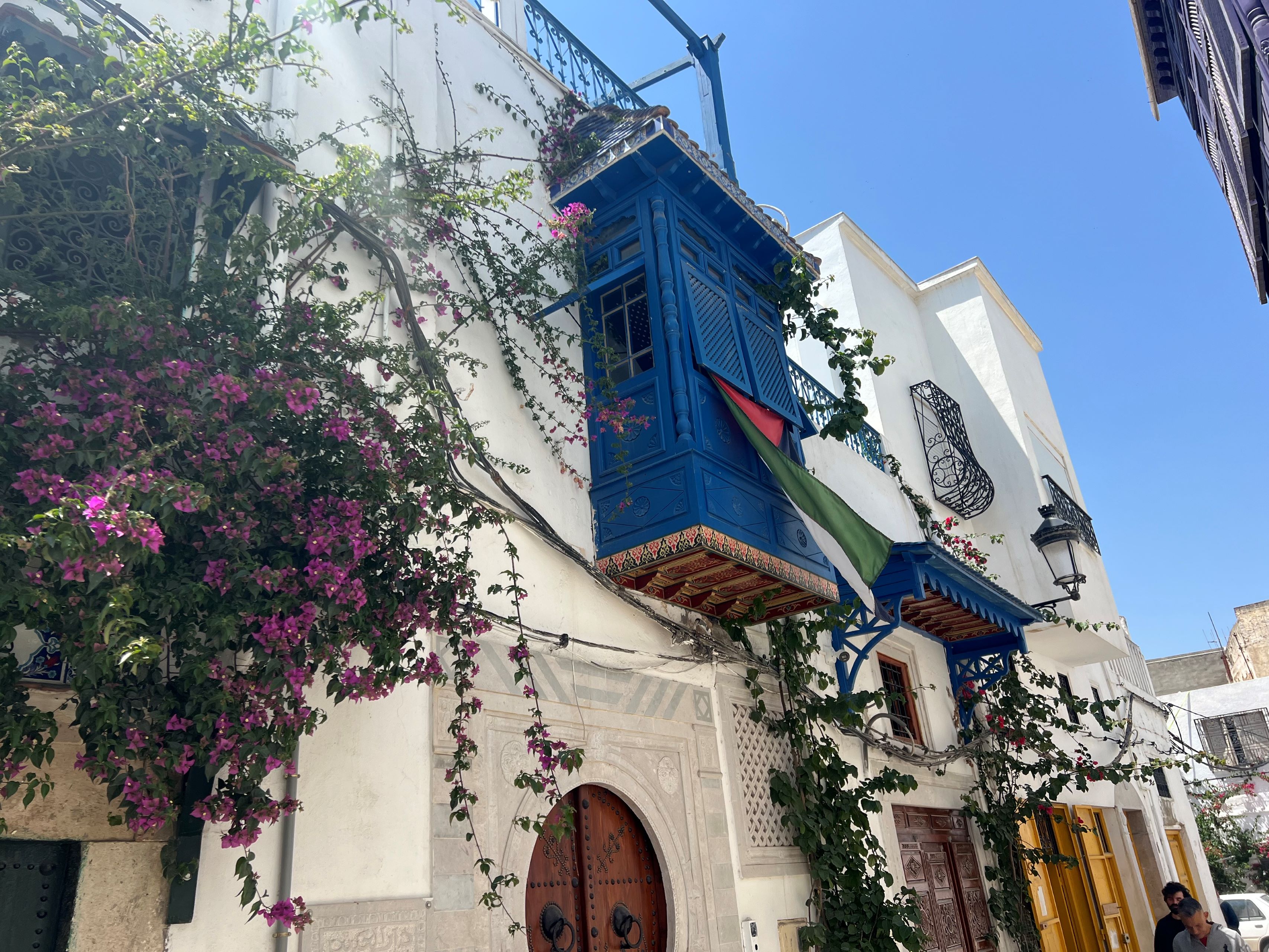
“International Studies has profoundly impacted my professional path”
Leslie Albracht (25) graduated in 2020. The interest in the Arabic world that was nurtured in The Hague, brought her to her current job for an international NGO in Tunis.
“I grew up in a small town in France, and as a teenager already I was really eager to see the world. I wanted to broaden up my perspective,” says Leslie Albracht. So when she was looking into how to continue after her high school graduation, she focused on university programmes abroad. Eventually she opted to do the International Studies programme and relocated to The Hague. “Leaving my home town felt like a real adventure.”
Her curiosity to know other cultures and other languages proved to be the propelling force during her bachelor’s studies. “I chose the MENA region as my specialisation, with Arabic as my language. I figured that this was the region where I knew least about, and it almost felt like a responsibility to learn about the culture, the history, the language.” At high school in France, there was not much room in the curriculum for the Middle East and North Africa, she recalls. “We only did two classes on the Algerian war. So I knew very little about countries like Tunisia, Morocco and Lebanon.”

A new world opening up
It was a good choice, Leslie says, “Throughout the programme I felt like a whole new world was opening up to me, with new countries to discover.” But knowledge about the Middle Eastern countries was not the only thing she learned. “Sensitivity for other cultures is certainly something that I also learned in International Studies,” Leslie says. “I have become very aware of the colonial narrative that European countries promoted in their relationship with for instance, Middle Eastern countries and North African countries. Therefore, I try to avoid a neocolonial approach at all times. In fact, this awareness also influenced the career steps I took since then.”
After she obtained her Bachelor’s degree, Leslie went on to do a Master’s in human rights and humanitarian action at the Science Po University in Paris. “After graduating, I found a job in Paris as a coordinator and trainer at an NGO for waste reduction and job creation for unemployed youth. My tasks included training and supporting long-term unemployed people who were being reintroduced into a work environment in centres that resell second-hand goods to promote sustainable consumption. In addition, I was involved in advocacy activities to officially recognise the job skills our staff gained and to secure formal acknowledgment of this professional certification from public authorities, thus enhancing our staff’s employment prospects.”
Improve language skills
She then decided to continue on the path that started in The Hague, during International Studies. “I really wanted to live in an Arabic-speaking country, to deepen my knowledge of the MENA region, improve my language skills, and to use and expand the job skills that I had gained so far.” She had set her sights on finding a position in Tunis, and elaborately mapped out the various opportunities. “I went to great lengths to find out what to expect of the jobs that were available, because moving to another country is a big step. You don’t want to get it wrong.” When she was invited for a job interview at the IECD (European Institute for Cooperation and Development), Leslie carefully prepared by “reading literally everything I could find about the organisation and the job.” Her efforts paid off, and she is now working as a Partnerships and Communications Officer at the Mediterranean New Chance Network, based in Tunis.
“The network consists of 18 actors from 10 countries throughout Europe and the MENA region. All actors share expertise on an equal basis, without any neocolonial bias towards partners from different regions, which I really appreciate. We are all dedicated to creating opportunities for NEET (Not in Education, Employment, or Training) youth, primarily through better vocational training.”
Full circle
Leslie not only is responsible for institutional communication, but is also involved in the organisation of events such as the network’s annual meeting, to be held in Rome later this year, and youth exchange programmes. She remarks that, in a way, she has come full circle since her time as an International Studies student: “For PRINS, I was in a team working on a youth empowerment plan for the Dutch Ministry of Foreign Affairs, a subject that is very similar to my current job. Also, here in Tunis I am continuing to study Arabic, which I began in International Studies. The programme, the tutors and the connections I made during International Studies have profoundly impacted my professional path.”
Leslie would like to conclude with a word of advice for current International Studies students: “Be sure to learn the language of the region you chose during International Studies. Continue to develop your language skills after the programme has ended. Knowing the language of a country is so important. It enables you to gain more information and to really get to know the people.”
-

Artwork by contemporary artist El Seed -

